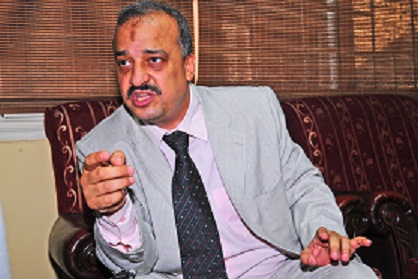
(Handout from the Palestinian Ministry of Interior)
Israeli airstrikes and shelling on Gaza killed more than 20 Palestinians Wednesday morning, including a journalist, said spokesperson for the Gaza Ministry of Health, Ashraf Qudra.
This brings the total death toll since Israel launched its assault 17 days ago to over 650 Palestinians, and more than 4,000 injured.
Twenty-seven Israeli soldiers and two Israeli civilians were killed.
“This is the third serious escalation of hostilities in my six years as High Commissioner,” the UN Commissioner for Human Rights Navi Pillay said in a statement.
“As we saw during the two previous crises in 2009 and 2012, it is innocent civilians in the Gaza Strip, including children, women, the elderly and persons with disabilities, who are suffering the most,” Pillay said.
Over 120 Palestinians were killed on Tuesday alone, including 26 children, according to the United Nation’s Office for the Coordination of Humanitarian Affairs (UNOCHA).
“One child has been killed every hour in Gaza for the past two days,” the UNOCHA report on Gaza read.
There are currently over 117,000 displaced Palestinians taking shelter in UNRWA schools. The OCHA report says most Palestinians see these schools as “safe havens” in Gaza. One of the UNRWA shelters was struck by explosive ordnance, reportedly fired by Israel, according to the report.
Intense overcrowding and lack of sufficient humanitarian aid and staff are of increasing concern as mass displacement continues.
Thousands of other displaced people are also taking shelter in Palestinian government schools as well as other public infrastructure which the UNRWA deems as “unsafe”.
On Tuesday Israeli authorities rejected a humanitarian pause, the report further stated.
“A ceasefire is not near,” Reuters quoted Israeli Justice Minister Tzipi Livni as saying. “I see no light at the end of the tunnel,” she said on Israel’s army radio.
She added that a ceasefire would not take place until Israel finishes its “tunnels project”.
Egypt offered a ceasefire initiative during the second week of Israel’s assault on the Strip. While Israel immediately accepted the initiative, Hamas rejected it and claimed it only heard about the initiative through the media.
“The Egyptian ceasefire initiative does not include anything about breaking the siege, does not say anything about the Rafah border crossing and it does not speak about the freedom of the Palestinian people,” said Ehab Al-Ghusain, the undersecretary of the Gaza Ministry of Information. “It is an initiative to secure the Israeli occupation more than anything else.”
Hamas set a list of demands as preconditions to any ceasefire, including an end of Israel’s eight-year blockade on Gaza, the opening of the Rafah border crossing with Egypt, and the release of prisoners that have been detained recently in the West Bank.
For the past eight years Gaza suffered severe humanitarian crises due to an Israel-imposed, Egypt-backed blockade of the Strip.
“This is our last chance to end the slow deaths caused by the blockade,” Al-Ghusani said commenting on Hamas’s prerequisites to the ceasefire.
Livni called Hamas’s preconditions “completely unacceptable” as they had “no chance of being accepted by anyone”, Palestinian News Agency Ma’an reported.
Israel continues to deny Palestinian detainees in the West Bank belonging to Hamas or Islamic Jihad visits from their families as “punishment”, lawyer Sherien Iraqi told Ma’an.
Several European airlines, including Air-France, Dutch airline KLM, Germany’s Lufthansa, and Norwegian Air SAS said they halted flights to Tel Aviv after a rocket fired from Gaza landed near Ben Gurion International Airport.
Egypt has consistently maintained closure of the Rafah border crossing, opening it for only one day out of the 17-day assault and letting in 20 Palestinian patients. Around 4,000 Palestinians in Gaza are seriously injured and are in dire need of medical attention.
“Before you couldn’t live because of the blockade,” Al-Ghusain said. “Can you imagine living with these attacks and the blockade?”

